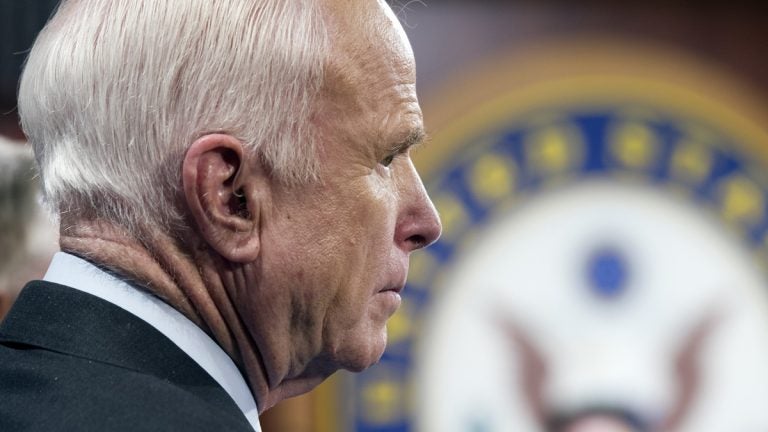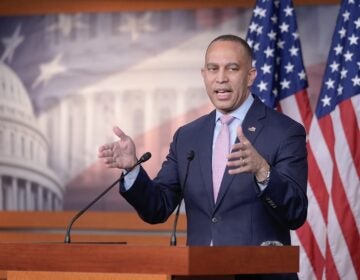Cuts contained in latest ACA repeal effort would hurt region

Sen. John McCain, R-Ariz. (Cliff Owen/AP Photo)
Senate Republicans are trying to push through a last-ditch Obamacare repeal — something that will be harder to do now that Republican John McCain has announced he’ll vote “no.” Locally, stake-holders and analysts are holding their breath to see what shakes out.
Senate Republicans in Congress have until the end of the month to repeal the Affordable Care Act with a simple majority. The Graham-Cassidy bill, introduced earlier this month, has gained steam.
But Sen. John McCain announced Friday that he will not vote in favor of the measure, significantly lowering its chances of passing.
Still, local leaders and analysts are waiting to see how the legislation shakes out.
The Graham-Cassidy bill is more far-reaching in its rollback of Obamacare than the previous repeal attempts. Medicaid expansion funds and subsidies to people for buying insurance would be converted to block grants, handing power over health care to states. The formula for distributing those funds largely benefits states that never expanded Medicaid under Obamacare, while cutting funds to more liberal states.
The Congressional Budget Office hasn’t released an analysis of the bill yet, but the Kaiser Family Foundation estimates that — from 2020 to 2026 — New Jersey would see a reduction of 15 percent in funding from current levels, while funding to Delaware and Pennsylvania would go down 20 percent.
Virtually everyone in Pennsylvania would be affected — or knows someone who would be, said Robert Field, Drexel University professor of law and public health.
“Pennsylvania might have to renege on the expansion of Medicaid under the ACA; it might have to curtail eligibility; it might have to curtail the services that are covered,” Field said. “Among the groups that are really at risk are the frail elderly, children, [and] the working poor.”
Bill sponsors have said the block-grant approach would give states more flexibility.
“So when I hear ‘state flexibility,’ I get excited about that,” said Teresa Miller, acting secretary of Pennsylvania’s Department of Human Services. “But cutting billions of dollars from Medicaid and giving states the flexibility to use reduced funding in the form of these block grants to try to maintain Medicaid benefits for those we serve is absolutely not the type of flexibility that we’re looking for.”
The bill also loosens protections under the ACA for those with pre-existing conditions and it allows states to seek exemptions from providing services such as mental health care and maternity care.
Pennsylvania U.S. Sen. Bob Casey, a Democrat, has said he’ll vote “no” on the bill. A spokesperson for U.S. Sen. Pat Toomey, a Republican, said Friday he’s still reviewing the legislation.
WHYY is your source for fact-based, in-depth journalism and information. As a nonprofit organization, we rely on financial support from readers like you. Please give today.




